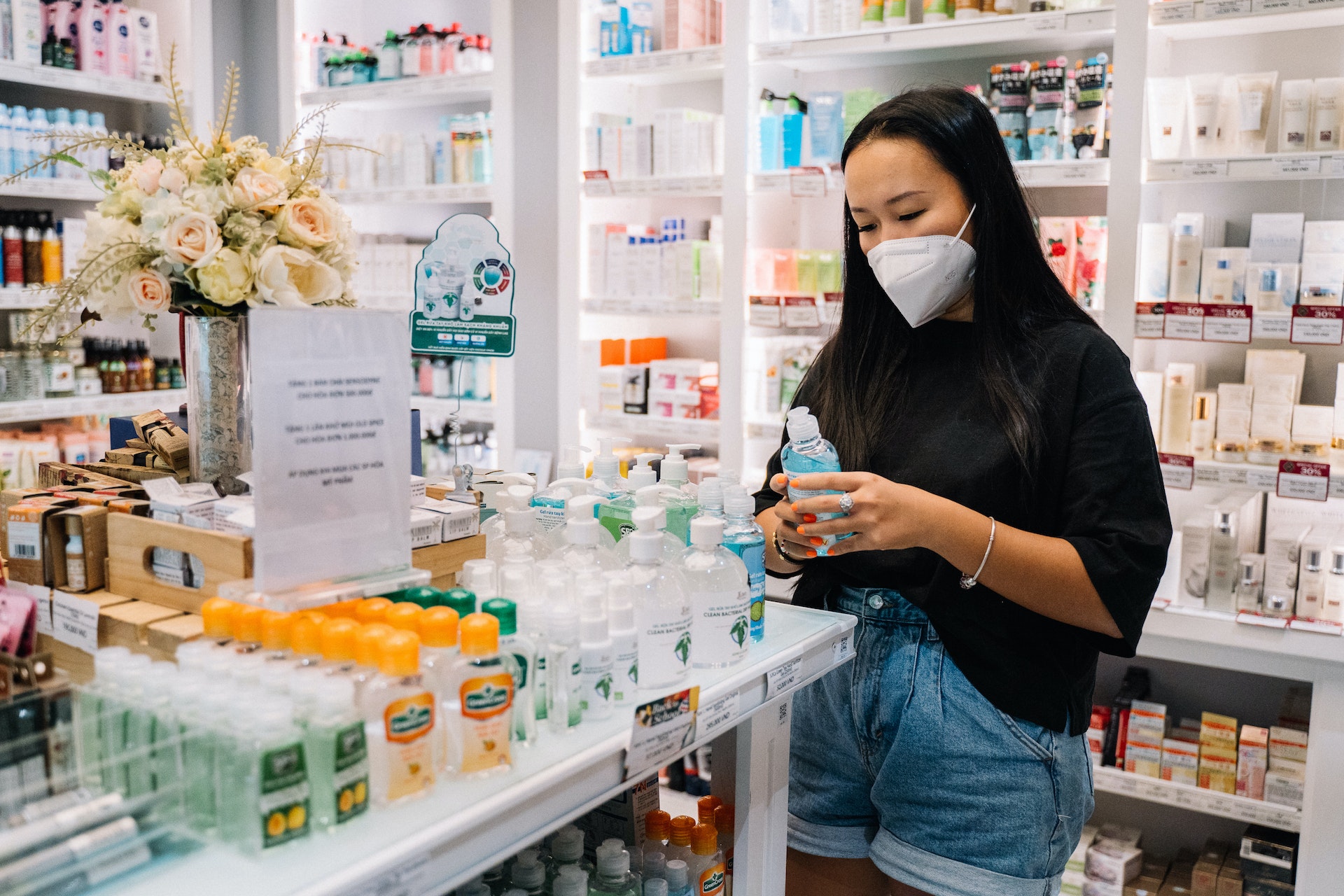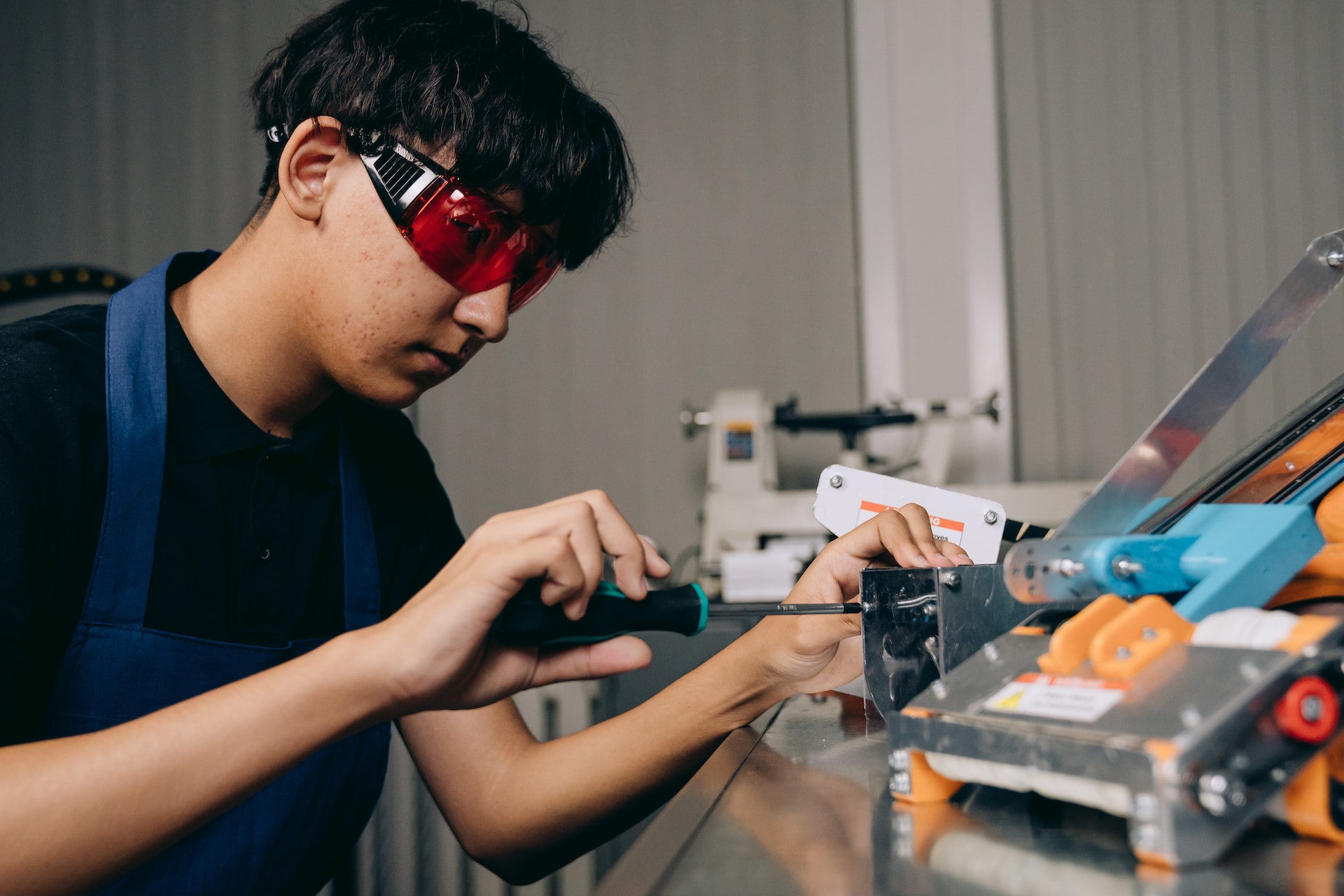Shape & Seal’22 Interactive Hands-on Endodontic Workshop For General Dentists
Workshop Brochure : Click here to View
Early signs point to expansionary election year budget
Read more about the upcoming 2023 budget and the factors that point it to a potentially expansionary election year budget in an article by the Vice-chancellor & Chief Executive of AIMST University, Datuk Dr John Antony Xavier. The article, 'Early signs point to expansionary election year budget', was featured in the columnists section of NST on 6 September 2022. It also suggests where the government should allocate its expenditure in 2023. Click here to read.
Poor oral hygiene can affect overall health
Poor oral health can have dangerous implications on our overall health. It is also a leading cause of death and disability worldwide, including Malaysia. Read more about this in an article by Associate Professor Dr Jegarajan Pillay, Deputy Dean, Faculty of Dentistry, AIMST University. The article, 'Poor oral hygiene can affect overall health', got featured in the letters to the editor column of NST on 1st September 2022. Click here to read.
How universities can remain relevant
Universities have a bounden duty to mould impressionable minds into better citizens and leaders. The impact of university education on a student's intellectual capacity is enormous. Accordingly, the Vice-Chancellor of AIMST University, Professor Datuk Dr John Antony Xavier, has enlisted three strategies for universities to respond to the high expectations reposed in them to ensure their continued relevance in an article titled 'How universities can remain relevant.' The article got featured in the columnists section of NST on 29 August 2022. Click here to read.
Success Stories: How Four Malaysia Women Built Success During Covid-19
 Women are making significant contributions to the business world. Successful female entrepreneurs are enthusiastic about what they do, and they build businesses around their interests.
Read the inspirational stories of these Malaysian women who founded profitable businesses and are making significant societal improvements.
Women are making significant contributions to the business world. Successful female entrepreneurs are enthusiastic about what they do, and they build businesses around their interests.
Read the inspirational stories of these Malaysian women who founded profitable businesses and are making significant societal improvements.

Ms Savina Kaharuddin
In 2020, when the pandemic first emerged, Savina Kaharuddin recognized an opportunity and began manufacturing bio-cellulose face masks and hand sanitizers in Malaysia. Ms Kaharuddin's business, VNI Scientific Sdn Bhd, was already producing environmentally friendly cosmetics and personal care products when she had the epiphany that she could also assist in the treatment of skin issues caused by the frequent usage of masks. She attended a training class by UNCTAD's Empretec, a United Nations program established by the United Nations Conference on Trade and Development, to make the most of this market opportunity and utilized the skills she gained there. Ms Kaharuddin explained that after conducting research on consumer behaviour and the market, her team came to the conclusion that consumers were interested in purchasing local items. Her business was successful as a direct result of the chances she took.
Olivia Quah Turned Her Passion into a Business
After spending time caring for her parents, Olivia Quah realized that working with older people was her calling in life and decided to turn that calling into a career. She formulated strategies for the growth of her company, Asian Integrated Medical Sdn Bhd, which is an online marketplace for the sale of items geared toward the elderly. According to Ms. Quah, "Goal setting for me involves finding solutions for the ageing population. It’s necessary to have a clear and specific long-term goal to measure short-term objectives." Thanks to her thoughtful strategic planning, she was able to increase her online sales by 100% and opened two new showrooms this year. She also plans to open a luxury retirement community in the future. The community will have 30 separate rooms and will employ medical professionals as well as other staff.
How Data Helped Ms Chandrekha Naidu
Ms Chandrekha Naidu launched her company, Heavenly Baker's Cakes and Pastries, by selling chocolate cakes on Facebook. She based her decision to do so on the insights she gained from analyzing the data. But due to frequent lockdowns caused by COVID-19, customers were unable to travel to the market to buy food. So, she used her customer list and information from Facebook to start a business that sells fresh fruit. Due to the difficult financial circumstances brought on by the pandemic, she also agreed to receive payments in instalments. Since she first opened her doors for business, her revenue has soared by a factor of two hundred.
Ms Eena Khalil: Innovation and Networking
Eena Khalil produces railway sleepers. At the height of the pandemic, her company, Mastrak, decided to shut down like many others. On the other hand, Ms Khalil did all in her power to keep all her employees and make constructive use of the downtime. Through her training at Empretec, she learned how to set clear goals, be creative, and make the most of the power of networking. "The most important thing for any entrepreneur is the ability to create goals for themselves." She said that "you have to have a clear idea of what it is that you want to accomplish." She instructed her staff, as a first step, to get in touch with both their customers and their suppliers to better understand their requirements and to deepen their ties. She also did more research on how the company could grow in the future as the market grows. The production time for the company was set back by five months, but thanks to her clear vision and plan, the company was able to get back on schedule by the time lockdowns were lifted in late 2021.Final Takeaways
We hope that after reading the stories of these successful women entrepreneurs, you will be inspired to start your own dream business and become successful as well. From their success stories, we learned that knowledge and training play an important role when it comes to taking a business to success. Knowledge and training empower entrepreneurs to move forward and give them the innovative ideas and networking opportunities they need in the highly competitive business world. AIMST University, an award-winning university in Malaysia, offers quality business and management programs, such as a diploma in business, foundation in business, bachelor of marketing, bachelor of accounting and finance, diploma in finance, and more. For further information, please feel free to schedule an appointment with our friendly and helpful course counsellors.Most In-demand Healthcare Jobs of the Next Decade
 If there is one thing that the pandemic taught the entire world, it is that healthcare is a basic human necessity, almost like a fundamental right. Every statistic out there points to a meteoric surge in the demand for nursing, doctors, chemists, and medical professionals.
The modern sedentary lifestyle has also necessitated the need for a larger pool of healthcare specialists in the areas of physiotherapy and pharmacy.
This has led to the emergence of ancillary services like biomedical study courses, biotechnology specialisations, and newer streams of dentistry like orthodontics.
Given the wide array of opportunities available in the healthcare sector for employment and entrepreneurship, young students wanting to study medicine, pursue an MBBS course, and specialise in dental technology, among other streams, are on the rise.
Healthcare vocations account for the vast majority of the highest-paying jobs. Anaesthesiologists, psychiatrists, and dental technology experts often make more than $200,000 per year.
These specialists, like all medical professionals who study medicine, must finish at least 11 years of post-secondary study and training.
Some of the more popular educational pursuits available for aspiring healthcare professionals are a four-year MBBS course followed by two years of a master’s degree. Nursing specialisation could be obtained with courses of a slightly shorter duration.
Biomedical engineering is now a full-fledged engineering stream of studies along with pharmacy and dentistry. To study medicine today means a lot more than just being in a dispensary or hospital – it means an ocean of opportunities.
If there is one thing that the pandemic taught the entire world, it is that healthcare is a basic human necessity, almost like a fundamental right. Every statistic out there points to a meteoric surge in the demand for nursing, doctors, chemists, and medical professionals.
The modern sedentary lifestyle has also necessitated the need for a larger pool of healthcare specialists in the areas of physiotherapy and pharmacy.
This has led to the emergence of ancillary services like biomedical study courses, biotechnology specialisations, and newer streams of dentistry like orthodontics.
Given the wide array of opportunities available in the healthcare sector for employment and entrepreneurship, young students wanting to study medicine, pursue an MBBS course, and specialise in dental technology, among other streams, are on the rise.
Healthcare vocations account for the vast majority of the highest-paying jobs. Anaesthesiologists, psychiatrists, and dental technology experts often make more than $200,000 per year.
These specialists, like all medical professionals who study medicine, must finish at least 11 years of post-secondary study and training.
Some of the more popular educational pursuits available for aspiring healthcare professionals are a four-year MBBS course followed by two years of a master’s degree. Nursing specialisation could be obtained with courses of a slightly shorter duration.
Biomedical engineering is now a full-fledged engineering stream of studies along with pharmacy and dentistry. To study medicine today means a lot more than just being in a dispensary or hospital – it means an ocean of opportunities.
What are the statistics which point to a surging call for healthcare jobs?
- Life expectancy at birth in Malaysia is 3 years
- 8% is the share of healthcare expenses in the Malaysian GDP
- The rise in popularity of Malaysia as a destination for medical tourism
1. Specialisation as a Doctor of Medicine (M.D)
Studying medicine and completing a rigorous MBBS course itself takes a lot of determination. Obtaining a master’s degree to be called an M.D. is even more challenging, which is why the number of such graduates is very low. It automatically becomes an in-demand healthcare career.2. Nursing
As of 2017, Malaysia had about 130,000 nurses, which was already a shortfall. With the pandemic and a growing awareness around healthcare, the demand for nurses is going to be never-ending. A Unienrol paper on this topic explains what’s in store for future nurses in great detail. If anything, nursing as a profession will always be hot.
3. Pharmacy
While an MBBS course to become a medical practitioner is in vogue, studying medicine also means specialising as a medicinal chemist. Pharmacy is a clinical science that integrates the world of chemistry with the medical sciences. With an increasing number of doctors engaged in physiotherapy, dentistry, and working as a surgeon, medical stores or kedai perubatan are mushrooming around the country. To manage and run these professionally, several thousand pharmacy specialists (chemists / pharmacists) would be needed.4. Biomedical
Like everything else in life, healthcare also needs engineering for inventions, technological development, and progress. A biomedical engineer or a biomedical science specialist performs the vital role of bringing together natural science and medical science to develop medical equipment and other tools. Needless to say, there will always be a dearth of biomedical professionals. As a stream of healthcare, biomedical will always be in high demand.5. Dentistry
According to market research firm Ipsos – about 6% of Malaysians visit a dentist about thrice a year. With a growing population and a steadily increasing disposable income, physical grooming spends tend to go up. Along with a drive to study medicine, acquiring skills as a dentist and specialising in dental technology could be a lucrative vocation. Streams like orthodontics, dental cosmetics, etc. are new-age trends which are here to stay.6. Physiotherapy
Sports as a career is so lucrative, especially in disciplines like badminton, tennis, football, etc., that droves of young adults now aspire to a career as a sportsperson. This also means the demand for professionals skilled in physical rehabilitation, rejuvenation, like physiotherapy, and sports medicine is growing every year. A rise in lifestyle-related ailments including arthritis, osteoporosis, and others is treated effectively by physiotherapy as an aid, along with physicians who undergo an MBBS course and study medicine.
7. Biotechnology
To study medicine is fundamental to pass an MBBS course and become a doctor. However, cutting-edge technology, especially medical biotechnology, makes it possible for individuals to specialise in developing pharmaceutical products and healthcare machinery (x-ray machines, scanners etc). Medical biotechnology as a stream of healthcare enables the creation of products, tools, and machines which assist in treating several ailments and disorders. In some use cases, biotechnology actually aids in the prevention of diseases. Such a job will always remain relevant and in demand.In a Nutshell
Healthcare is going to play an important role within society at large in the coming decades specifically and for the times ahead in general. It is only natural that the demand for people to take up such jobs is high. For further advice and guidance regarding study pathways and course details, please feel free to get in touch with our friendly and helpful counselors.Malaysia’s Most In-Demand Jobs for 2023
 When it comes to entering the Malaysian job market, it all boils down to matching the right demand. For instance, a diploma in nursing or a bachelor of finance degree can get you a good-paying job after graduation.
After all, the rising number of unemployed graduates indicates that possessing just about any degree is no longer sufficient. But how can you tell which fields are thriving (and crying out for more employees)?
Continue reading to learn about the most in-demand careers in 2023.
Most people now rely on technology to do tasks remotely or to keep businesses functioning. This also means that many processes have to be migrated to the digital domain, altering the kinds of positions that businesses are searching for.
However, certain conventional occupations remain in high demand, demonstrating that some skills and experience remain important in the new normal. Some of them include nursing, pharmacy, marketing, finance, and more.
The following are the most in-demand jobs in Malaysia in 2023.
When it comes to entering the Malaysian job market, it all boils down to matching the right demand. For instance, a diploma in nursing or a bachelor of finance degree can get you a good-paying job after graduation.
After all, the rising number of unemployed graduates indicates that possessing just about any degree is no longer sufficient. But how can you tell which fields are thriving (and crying out for more employees)?
Continue reading to learn about the most in-demand careers in 2023.
Most people now rely on technology to do tasks remotely or to keep businesses functioning. This also means that many processes have to be migrated to the digital domain, altering the kinds of positions that businesses are searching for.
However, certain conventional occupations remain in high demand, demonstrating that some skills and experience remain important in the new normal. Some of them include nursing, pharmacy, marketing, finance, and more.
The following are the most in-demand jobs in Malaysia in 2023.
Nursing
Nursing is a common career choice in Malaysia. Despite the increasing number of nursing graduates, there is still a significant lack of nurses. More specifically, there aren't enough nurses who specialize in intensive care units (ICU). In addition, there is a general shortage of post-basic trained nurses and operating room nurses. With a diploma or bachelor of nursing degree, you can pursue a career in nursing.Pharmacy
Unlike in the past, pharmacy practitioners must now be flexible in their work and responsive to the changing nature of the healthcare business. For starters, the global trend toward specialization in medicine delivery and pharmaceutical treatment is impacting pharmacy practice around the world. Second, the shifting retail pharmacy environment, from independently owned pharmacy shops to nationwide chain stores, necessitates the flexibility of pharmacy graduates. Third, there is a huge need for industrial pharmacists in Malaysia's growing pharmaceutical business. Pharmacists have excellent work prospects in Malaysia. Pharmacy graduates work in many different places, such as hospitals, private clinics, research and development, drug enforcement, and more.
Marketing
A bachelor of marketing degree will equip you for a variety of jobs. One of the benefits of studying marketing is that you can develop a solid foundation of business abilities that are not limited to sales. Professional marketers are in high demand in any business that creates and sells a product. Businesses will be eager to hire you if you have the necessary knowledge and skills. Marketing encompasses all of the operations required to get a product from the manufacturer to the customer. With a wide range of marketing management courses accessible to students, it is critical to select the right one from a top institution in Malaysia that will help you acquire the information and skills for an interesting and successful career.Finance
Finance is a profession that focuses on managing money and wealth, ensuring that individuals, organizations, and governments make sound investment decisions and allocate their funds effectively to maximize their return on investment. Finance graduates with knowledge of allocating funds and managing risk versus return have a wide range of job opportunities in a variety of businesses, including banks, securities trading firms, and consultancies. A research analyst, corporate finance consultant, financial planner, and finance executive are all critical positions that a bachelor of finance degree holder can fill after school.
Software Development and Information Technology
Tech positions are in high demand these days, as businesses of all sizes incorporate digital technology into their everyday operations. With a greater reliance on digital technology, there will be more career prospects in technology. Software and app developers are at the top of the list since they are in charge of developing digital platforms for organizations. The same is true for web developers and user experience (UX) designers, who make smart designs for these platforms to help businesses work better. Because of the development of telecommuting, information technology (IT) occupations are also in high demand. Companies that are setting up new IT systems for the "new normal" still need system analysts and cyber security experts.In a Nutshell
These are the most sought-after jobs in Malaysia. We hope this post can assist you in better deciding on your future career path. Remember that when deciding on a prospective professional route, it is important to also consider your passions and interests since these will influence your success. For further advice and guidance, please feel free to make an appointment with our friendly and helpful counsellors for a full consultation.What is Electrical and Electronics Engineering
 According to a research paper published by Tony Nelson Winson and Rashad Yazdanifard, about 23% of Malaysian students change their major in the first 2 years of their higher studies.
That means about one out of every five high school leavers have difficulty deciding what stream they should pursue as their major degree.
Irrespective of the choices available for students, engineering as a choice has always been a popular pick amongst the student community.
This article will help you understand the features of electrical and electronic engineering.
According to a research paper published by Tony Nelson Winson and Rashad Yazdanifard, about 23% of Malaysian students change their major in the first 2 years of their higher studies.
That means about one out of every five high school leavers have difficulty deciding what stream they should pursue as their major degree.
Irrespective of the choices available for students, engineering as a choice has always been a popular pick amongst the student community.
This article will help you understand the features of electrical and electronic engineering.
What is Engineering?
The profession of engineering takes the knowledge of mathematics and natural science gained through study, experience, and practice and applies this knowledge with judgment to develop ways to utilize the materials and forces of nature for the benefit of mankind. It is vital to have the best knowledge possible to undertake any role successfully in engineering.What is Electrical Engineering Degree?
Let us get to know more about the electrical engineering degree: The first Electrical Engineer was graduated from Cornell University (US) in 1885. Electrical engineering is the largest branch among engineering representing about 31% of graduates entering globally.
Because of the rapid advances in the technology associated with electronics and computer science, this branch of engineering is growing faster.
The field of electrical is strengthened and reinforced by philosophies and inventions of scientists such as Michael faraday, George Simon Ohm, James Clerk Maxwell, Thomas Alva Edison, Nicola Tesla and Oliver Heaviside, etc.
This Branch of engineering is not only lighting the entire world but also forms the base for electronics, micro and nano electronics, communication, control and mechatronics engineering.
In general electrical and electronics engineering may have core courses such as electromagnetic field theory, electronic devices, electrical circuits, signals and systems, electrical machines, measurement and instrumentation, automation systems, power electronics and power systems, high voltage engineering, digital signal processing etc.
Almost every minute of our life, we depend on communication equipment developed by electrical engineers.
Greater strides have been made in the control and measurement of phenomena that occurs in all types of processes. Furthermore they have plenty of opportunities in project management, quality management and reliability engineering and automation industry.
Energy engineering is another sub topic of electrical and electronics engineering which deals with not only energy generation, also energy utilization, green energy buildings and Heating Venting and Air Conditioning (HVAC).
IR 4.0 related courses such as Artificial Intelligence, Robotics, Data analytics are part of electrical and electronics engineering
After graduation, electrical and electronic engineers are placed in power generations and utilities, construction, oil and gas industries and semiconductor industries.
The first Electrical Engineer was graduated from Cornell University (US) in 1885. Electrical engineering is the largest branch among engineering representing about 31% of graduates entering globally.
Because of the rapid advances in the technology associated with electronics and computer science, this branch of engineering is growing faster.
The field of electrical is strengthened and reinforced by philosophies and inventions of scientists such as Michael faraday, George Simon Ohm, James Clerk Maxwell, Thomas Alva Edison, Nicola Tesla and Oliver Heaviside, etc.
This Branch of engineering is not only lighting the entire world but also forms the base for electronics, micro and nano electronics, communication, control and mechatronics engineering.
In general electrical and electronics engineering may have core courses such as electromagnetic field theory, electronic devices, electrical circuits, signals and systems, electrical machines, measurement and instrumentation, automation systems, power electronics and power systems, high voltage engineering, digital signal processing etc.
Almost every minute of our life, we depend on communication equipment developed by electrical engineers.
Greater strides have been made in the control and measurement of phenomena that occurs in all types of processes. Furthermore they have plenty of opportunities in project management, quality management and reliability engineering and automation industry.
Energy engineering is another sub topic of electrical and electronics engineering which deals with not only energy generation, also energy utilization, green energy buildings and Heating Venting and Air Conditioning (HVAC).
IR 4.0 related courses such as Artificial Intelligence, Robotics, Data analytics are part of electrical and electronics engineering
After graduation, electrical and electronic engineers are placed in power generations and utilities, construction, oil and gas industries and semiconductor industries.

Power up against Omicron
Vaccination, diagnostics, and public health tools have helped us survive the Covid-19 pandemic in the past two years. And the good news is that the vaccine still protects against severe diseases and contributes to the low death rate in Malaysia and other countries even though there is a spike in the number of infections. The Dean of Faculty of Applied Sciences, Director of the Centre of Excellence for Vaccine Development, and Chairman of the Covid-19 Task Force, AIMST University, Senior Professor Dr Ravichandran Manickam, has outlined six measures to help us deal with the spike in infections. The article ‘Power up against Omicron’ got featured in the Letters column of NST on 1 August 2022. Click here to read.
Finding our ‘ikigai’ is key to happiness
Get to know more about 'Ikigai,' a Japanese concept that refers to something that gives a person a sense of purpose or a reason for living in an article by Dr Shivali Shamsher from the Anaesthesiology Department at the Faculty of Medicine AIMST University. The article, 'Finding our 'ikigai' is key to happiness,' will explore the four elements that constitute 'Ikigai' and how it relates to students and professionals. It got featured in the columnist section of NST on 24 July 2022. Click here to read.
There is ample room to increase interest rates further
As Malaysia's economy continues its recovery momentum, more rate increases can be expected. With the recent rise in May 2022, Bank Negara Malaysia (BNM) is confident that the country's economic vigour will mitigate any undesirable impact. In line with this, the Vice-Chancellor & Chief Executive of AIMST University, Professor Datuk Dr. John Antony Xavier, has elaborated on the implications of the recent interest-rate hikes for the economy in an article titled, 'There is ample room to increase interest rates further.' The article got featured in the columnists section of NST on 11 July 2022. Click here to read.
The Surework Education Fair
Date : 2nd & 3rd July 2022, 11.00 am - 5.00 pm
Venue : Midvalley KL
Booth : Hall 1, B1-B3

